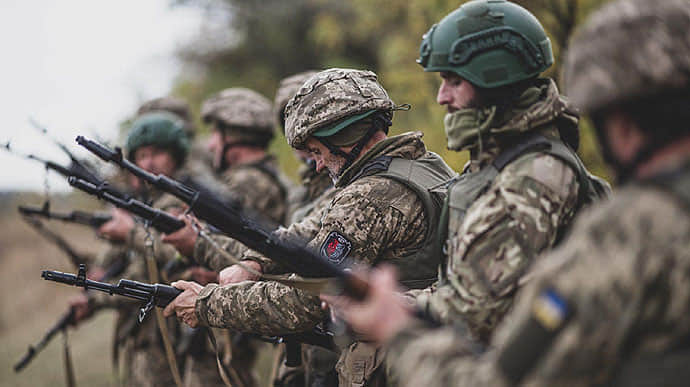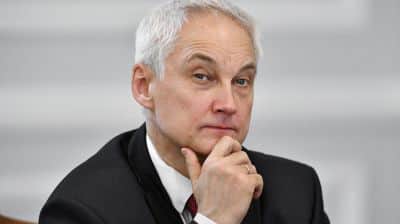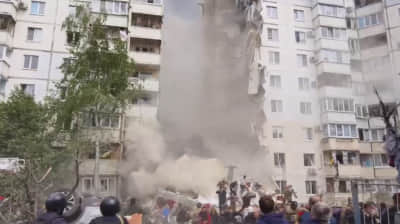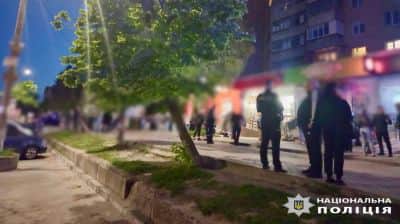Ukrainian parliamentary committee sees corruption risks in government draft law on mobilisation

During its meeting on Monday, 8 January, the Ukrainian Parliament's Committee on Anti-Corruption Policy recognised the government's draft law on mobilisation as containing corruption risks.
Source: Anastasiia Radina, Chair of the Committee, in a comment to Ukrainska Pravda
Details: The official said the committee concluded that conscription was necessary in Ukraine but some draft law provisions have corruption risks. Radina did not specify them and promised to provide this information later.
She added that the representatives of the Ukrainian Defence Ministry and the General Staff attended the meeting. They agreed with the committee's conclusion and promised to address the shortcomings.
Update: Later, Radina explained the situation on Facebook.
Quote: "The Committee did identify a number of problematic provisions that could lead to corruption risks. At the same time, the Ministry of Defence agreed with the comments made. We are working on changing procedures and approaches together with the relevant committee, the Committee on National Health and other colleagues."
Details: Radina stressed that the committee's decision does not mean that its members are against improving the mobilisation procedure. On the contrary, "mobilisation should be fair, predictable and without corruption loopholes."
She listed the things in the draft law that need to be improved to avoid risks of corruption:
- Local governments should not be obliged to ensure the arrival of persons liable for military service in the military enlistment offices. Local authorities can provide transport, but cannot use coercion. Instead, the obligation to ensure arrival without specifying the manner in which it should take place may give rise to lawlessness.
- Clearly define the terms and conditions under which the military enlistment offices can initiate the inclusion of persons liable for military service in the register of debtors with further restrictions on the disposal of property, etc. Chiefs of military enlistment offices should not be able to enter people into the register the day after their non-arrival (since non-arrival is possible for valid reasons), or turn a blind eye to a person’s non-arival for months. Restriction of rights may occur after a person is brought to justice for violating the obligation to appear on call.
- To remove the right of district (city) enlistment offices, as well as higher-level enlistment offices, to grant citizens deferrals from basic military service (not to be confused with mobilisation) at their own discretion.
Quote: "There are many more issues in the bill that need to be carefully revised. First and foremost, it is about overcoming corruption in the military medical commission and medical and social expert commission. Procedures for confirming other circumstances that are grounds for deferring mobilisation also need to be finalised."
Details: Radina promised that the detailed conclusion of the anti-corruption expertise to the bill on mobilisation would be published on the website of the Verkhovna Rada.
She also said that in February-September 2023, the Committee on Anti-Corruption Activities adopted 34 conclusions on the presence of corruption risks in various bills.
Background:
- The Cabinet of Ministers submitted draft law No 10378 On Amendments to Certain Legislative Acts of Ukraine on Improving Certain Issues of Mobilisation, Military Registration and Military Service to the Ukrainian parliament. It regulates the issue of postponement of conscription for military service, including for people with disabilities.
- The government proposes to impose a series of restrictions on those citizens who have not fulfilled their duties regarding preparations for mobilisation and mobilisation in general. They propose to increase fines for those who violate military registration rules and defence legislation, and those refusing medical examination will face imprisonment, in the same way as for evading mobilisation.
- Dmytro Lubinets, Ukrainian Parliament Commissioner for Human Rights, said that some points of the bill on mobilisation may contradict the Constitution.
- Mykhailo Podoliak, Adviser to the Head of the Office of the President of Ukraine, said during the national joint 24/7 newscast that the draft law on mobilisation would be put to a vote in the parliament only after it has been discussed and amended.
Support UP or become our patron!







